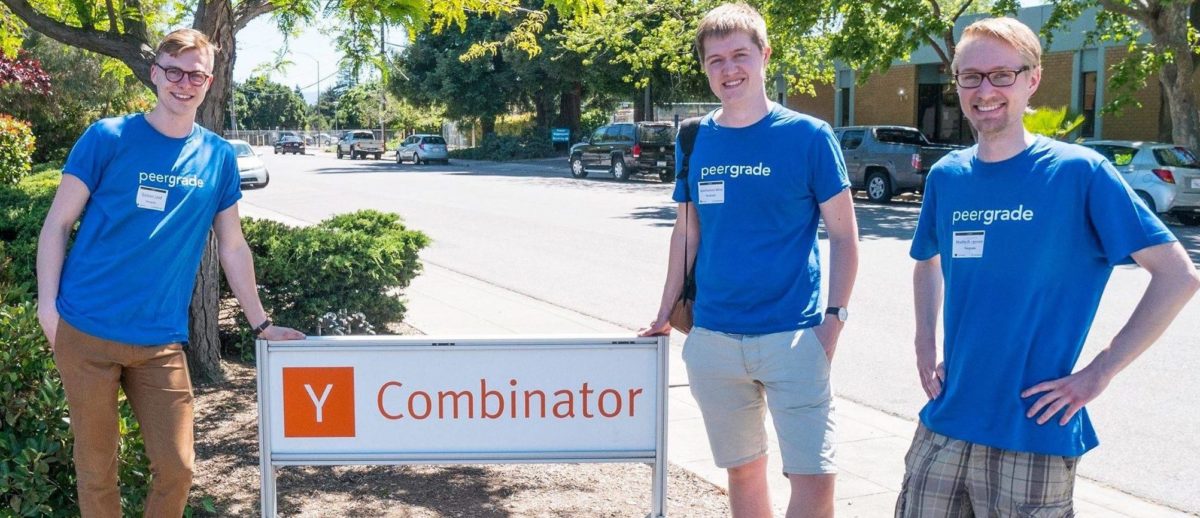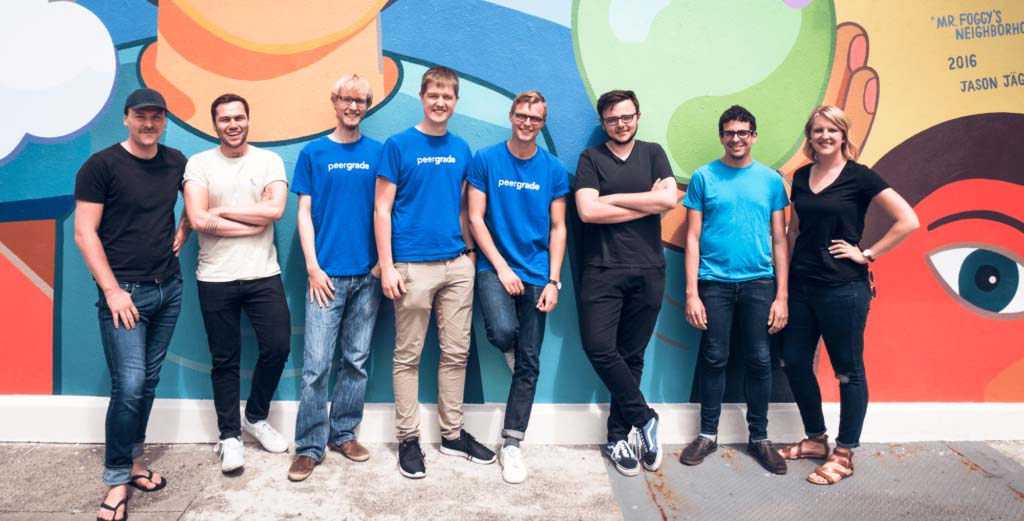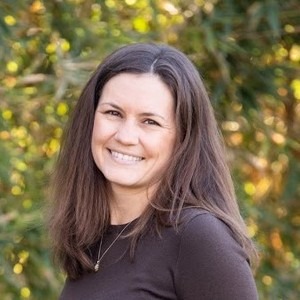The story of when 8 x Co-Founders flew from Denmark to San Francisco for Y Combinator
- 1.From Wolf of Wall Street to a "Made Man" in Silicon Valley
- 2.How LendEDU Raised the Most Valuable Seed Round Imaginable with Y Combinator
- 3.Kyle Killion's story of getting Suiteness into Y Combinator along with tips on how to apply
- 4.Rotem Yakir shares Guggy’s story of evolving from "just another Israeli Startup" to a YC startup
- 5.The True Story of How Orion Willow Got Lendsnap Accepted Into Y Combinator
- 6.Nicky Goulimis shares Nova Credit's Path to Y Combinator Acceptance and Beyond
- 7.Katherine Nammacher Chronicles RideAlong’s Journey Into Y Combinator
- 8.The Story of How a Sofa Startup Got Into Y Combinator with Just a Pitch Deck
- 9.The story of how two college friends joined forces to disrupt an industry with Iris Automation
- 10.How 4 Swedes got their SaaS accepted into Y Combinator while still at $0 MRR
- 11.The story of when 8 x Co-Founders flew from Denmark to San Francisco for Y Combinator
- 12.Ryan Chan the founder of UpKeep shares his Y Combinator Journey
- 13.Pedro Goes of InEvent shares his Y Combinator Journey
- 14.Itay Forer of Cleanly shares his Y Combinator Journey
- 15.How to get into Y Combinator according to the founders that did get in
- 16.What It Was Like Doing Y Combinator a Second Time
David Kofoed Wind is the co-founder and CEO of @ Peergrade, a free online platform to facilitate peer feedback sessions with students. Peer feedback is a way to ensure that students get the necessary feedback on their work, while at the same time providing a better learning experience.
Can give a little bit of background about your company?
The story of Peergrade begins while I was completing my Ph.D. in machine learning in Copenhagen. I was teaching a course by myself and the course got a lot larger than I was expecting. It was this supposed to be a cohort of just 30 students but 150 people enrolled!
But when you have too many students and you want to do something meaningful, grading because of a major challenge. You can’t grade a hundred and fifty students every week. It’s just way too time-consuming.
Either I had to scrap a lot of the activities I wanted to do or we had to think of another solution. Ultimately we decided to keep all the activities and let the students participate in reviewing each other’s work. This required us to build some software with the following requirements. It needed it to be anonymous, and we needed to specify which criteria they could review each other’s work on.
So I started building peer grade as a tool for myself in my class. Fast forward a few weeks, my supervisor finds out about this software and convinces me to sell a license to the university! I suddenly had to make a company because now I sold somebody a license!
Fast forward and the next two years we focused on broadening our market from universities to schools and corporates and of course building a lot more functionality on the product and getting more users.
And that’s kind of how it started back then.
Why did you decide to apply to Y Combinator in the first place?

The first one didn’t require us to give away any equity to participate and it was decent. We learned things but we didn’t get dramatic value out of it because incentives weren’t that aligned.
And then we said, okay if we do this again, we should join a better accelerator. We then joined Emerge Education in London, which is an edTech accelerator.
We gave them some equity, got some money, and overall had a better experience because they were pushing us to grow. Because the experience was so good, we thought about doing it once more. But we all knew that we were at that point in our life where if we were going to do this again, there was only one accelerator that we’d consider taking part in…
And that had to be Y Combinator!
You see all these famous companies and think, “I want to be a part of that too,” beyond just the money, we viewed it as a footstep into the North American market (which is our biggest market now).
We’re sitting here in Copenhagen and thinking, “how on Earth are we going to get any connections in Silicon Valley or the USA in general?,” and for us, getting into Y Combinator was the easiest solution for that.
How much traction did you already have before you started the application process?
I actually looked up and found my old application so I could see what I wrote back then. We had been around for a while before we got into Y Combinator, we were almost two years in.
And when we went into YC we could see that we were dramatically later stage than most companies. A lot of companies are on the idea stage or just launched a week ago. But in our case, we had about 10,000 monthly active users and had made $100-200k in revenue from our early customers.
We saw a variety of traction scenarios in our batch. We saw people who pivoted on day one, we saw people with a good idea, we saw people with millions of dollars in annual revenue being completely profitable joining YC. And then there were a lot of companies that were not about the revenue like people building spaceships that we’re not really measuring the same metrics as us but that were clearly very later stage.
There’s a pretty broad mix, but I would say the most common startup type was very early post product launch with around $1,000 MRR.
And I remember asking some of these later-stage startups, “What the hell are you doing? Why are you here?” One of the founders I asked expressed their biggest goal with Y Combinator is to attract better technical talent. They needed help recruiting very good CTO type people and YC has a good brand in that space.
That’s pretty crazy when you think about it. Getting into Y Combinator almost purely to get help with recruiting, but if that’s going to drive your company 7% higher than maybe it is the right decision…
How much time and effort that you put into the application
Not that much actually.
I would say we’re probably decent writers. I read a lot of YC applications and I read a lot of applications in general for different things.
And a lot of them are really bad from a writing perspective.
If you’re a bad writer, you need to spend more time on it. They don’t have a lot of time to read them and if it’s cluttered and it’s not clear then you’ll just get rejected.
Our application was extremely short with one to two sentence answers to each question. Our application was five pages in the printed format while others’ applications were like 20 pages. That’s way too long. If you condense it down the overall quality increases.
So here’s the sequence of events:
- I wrote the first draft and then sent it to my co-founders
- They gave some comments and rewrote bits of it.
- We then we had a call with our earlier investors, and one of them had invested into two other companies that went into YC. We booked a call with them where they could give us some feedback on the application.
- After the call with our earlier investors, we added a few answers based on their feedback and then we sent it in.
I spent maybe five to eight hours of concentrated time on the application in total.
You mentioned your application was very concise, can you elaborate on why conciseness is important?
You have to keep your application short so as to make it more clear. It’s such a YC thing. They really, really value conciseness – To such a degree that it almost becomes crazy. But it is so important for YC to be able to just read in one sentence and understand what you are actually doing.
So there can be no words such as, “we are changing the way people communicate in blabla.”
No, like, what are you actually doing?
“We’re building a place where you can get a call with somebody by the minute.”
Yeah, okay, that I can really understand instantly.
It might seem lame when you take your great company and your grand vision and condense it into some boring one-liner, but it’s really effective for communicating what you’re doing.

David Kofoed Wind - co-founder and CEO of @ PeergradeNot everything has to look like a grandiose plan in the beginning, and that’s very hard for applicants to figure out, I think a lot of people make a mistake there.
The best way to be concise is to have great numbers. If you have a product people can understand and numbers that show that it’s working then you don’t need anything else. And that’s one of the many reasons why we got in, but I think one of the other main reasons was that our idea was kind of weird.
It didn’t really make sense in some way.
It’s not clearly a good idea to have students grade each other, that seems hard to make work. But we were making money and they’re like, “okay so it does work! Yeah, that’s interesting.” They like weird ideas that do work versus too obvious ideas that don’t generate a lot of value.
We had a good team, we were three technical founders, so in many ways, we were an easy match for Y Combinator. But then again you have to hit a lot of checkmarks to get in and I guess we were good enough and lucky enough to pass all of them.
What was your interview process like?
Y Combinator pays for your flight tickets and hotel to fly in for a 10-minute interview, which is pretty wacky.
But these days a lot of applicants get a pre-interview over Skype. We didn’t though.
We flew out directly to San Francisco, did our ten minutes of answering different questions, then went to a bar and looked at some beers for a few hours just waiting.
You either get a call saying “you’re in!” or you get an email saying you’re not in.
And so after three hours of just staring in silence at the phone, it suddenly rang and then we were very happy.
But it’s a very incredible and crazy process to fly out for 12 hours to do a 10-minute conversation.
But luckily it worked out for us.
Did you stay longer than three months or did you just go back
I had to go back to renew my Visa at some point, and then we had to bring our entire 8 person team.
We brought everybody to San Francisco and rented a very small apartment.
We had one bathroom and three bedrooms for eight people.
We were sleeping in bunk beds in cold San Francisco for three months, it was really tough.
We still have post-traumatic stress from that trip.
What were the biggest benefits beyond just the money?
That’s a great question because I think it’s probably the reverse of what people think.
The money is great but it’s not why people join YC, you can get the same money elsewhere. We had the same money elsewhere already and better terms. And the other thing people think a lot about when they think about YC is the accelerator program in San Francisco.
But honestly, I had read all the essays, the blog posts, and watched the videos. So getting told that you have to do things that don’t scale was kind of like, “Yea I already know, I read your blog posts.” The program was great not because of the things that I learned from YC but rather because I got to talk to some incredible founders from companies such as Airbnb and other great companies and they gave well prepared talks, with a lot of great stories to learn from.
But the things that really mattered were the other things.
The Y Combinator brand is incredibly powerful.
It helps you get media attention, attract talent because people like Y Combinator and they want to work for YC companies, and it helps you raise money because everybody wants to talk to the YC company, especially if you’re not from the USA.
When we came back to Denmark, we were the fifth company in Denmark to go through Y Combinator.
All the Danish VC firms want to invest in the Danish Y Combinator companies. It was very easy to get a conversation with any investor. It doesn’t necessarily mean you’ll get the money, but it does mean you’ll get the meeting every time.
Another thing that’s really good about YC is the network. You get to talk to all the other founders that go through Y Combinator at the same time as you. Hundreds of people with the same problems as you and they can always help out.
But then the really big benefit is the long-term value you get from the Y Combinator internal forum called Bookface where you can talk to founders from old batches. That’s a few thousand people by now and that forum is extremely active and it’s extremely good. A lot of very impressive things happen on that forum and people help each other out a lot.
The amount of value you can drive from that forum is a lot more than what you get from the actual program because the program is time-boxed to three months, but the forum stays forever.
A lot of the value from Y Combinator comes post after those 3 months. I could go in right now and book a time with any of the partners in their calendars. I can go and ask questions on the forum. Every day I’ll read all the posts on Bookface, from beginning to end, because it’s just so high value.
And then, of course, there’s a bunch of other things like their new Series A program, the discounts on different sorts of products, and the ability to recruit. We hired some of our recent engineers through YC internal recruiting system.
YC is like an unfair advantage in so many different ways that the value of the money and the program itself actually pales in comparison to the value you get from the other parts of YC.
If you had to think of one tip for founders thinking of applying what would it be?
I would recommend to copy the questions over in Google Docs for the application form, write out very concise clear answers to the questions. Then find one person who knows how to get into YC and ask them if they’re willing to read through your application.
Don’t ask 10 people, there’s a lot of people do that.
They’re like, “hey David, can you help us read our application?”
And then I go into Google Docs and I can see that there are nine other people editing at the same time and that’s just a waste of everybody’s time because everybody’s editing in different directions and have conflicting opinions.
Find one person was really good, get them to read your application for you, and then iterate on their feedback and then send it in.
The way to get into YC is to write a really good application.
If that’s good enough, then just continue with the interview, but that’s a problem for later. First of all, is just about getting to that interview.






